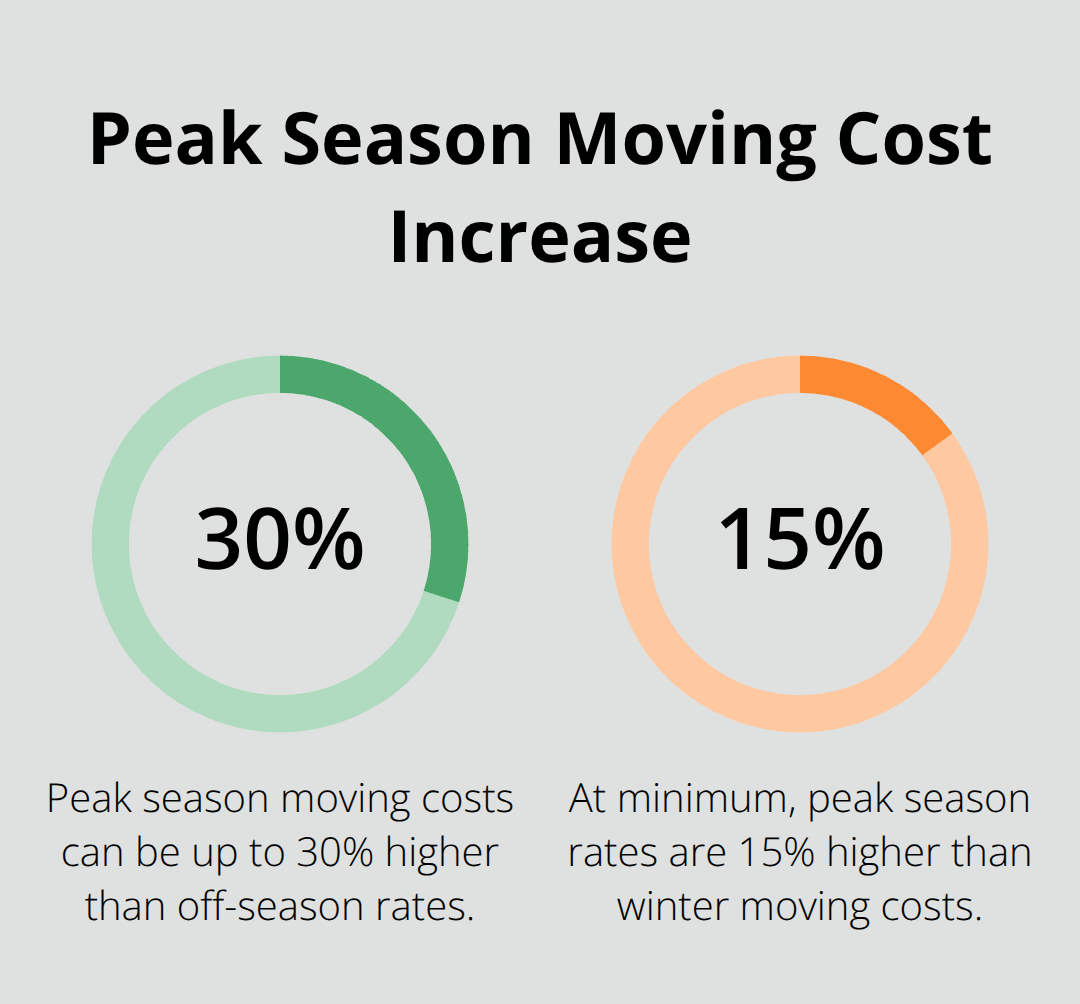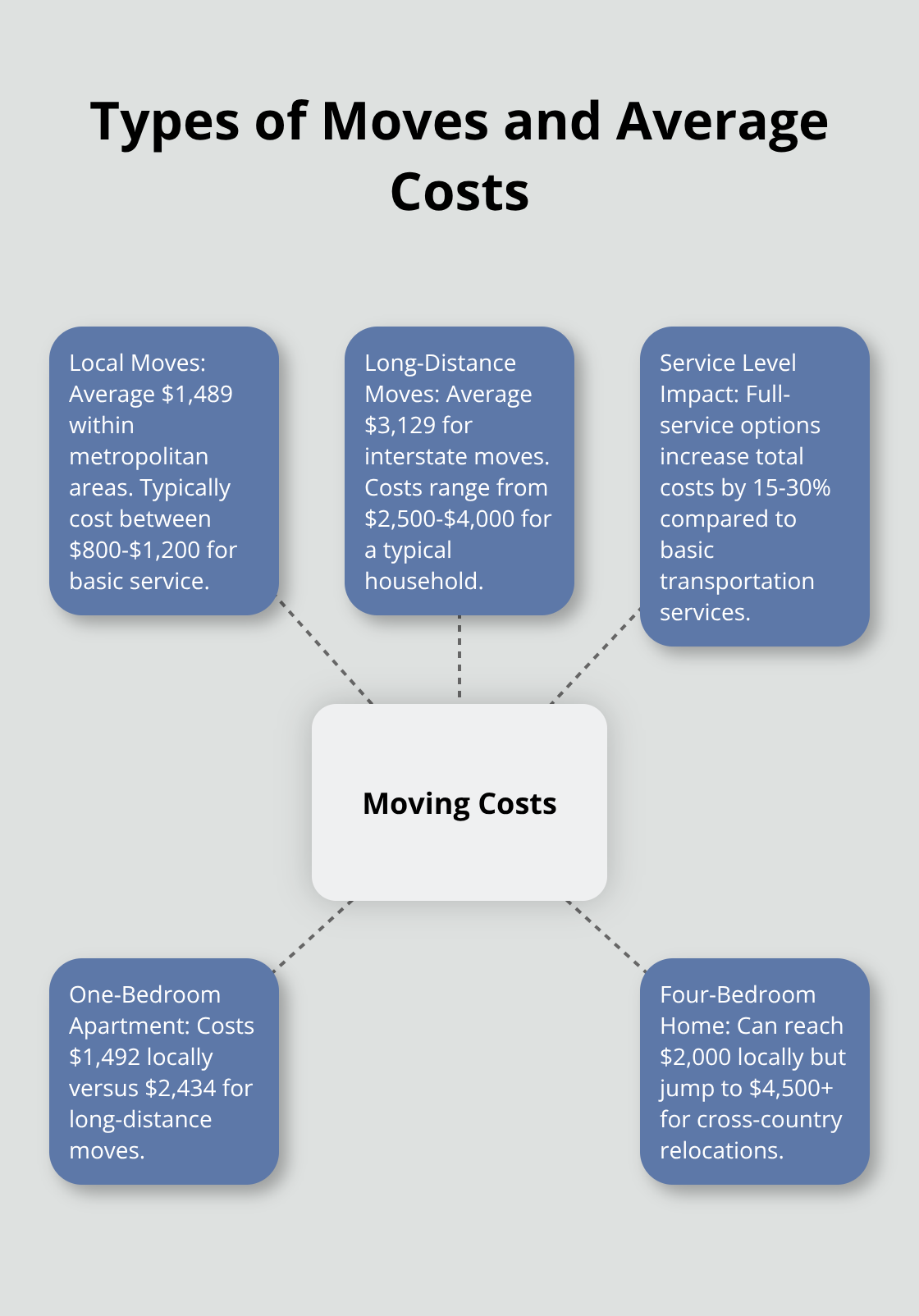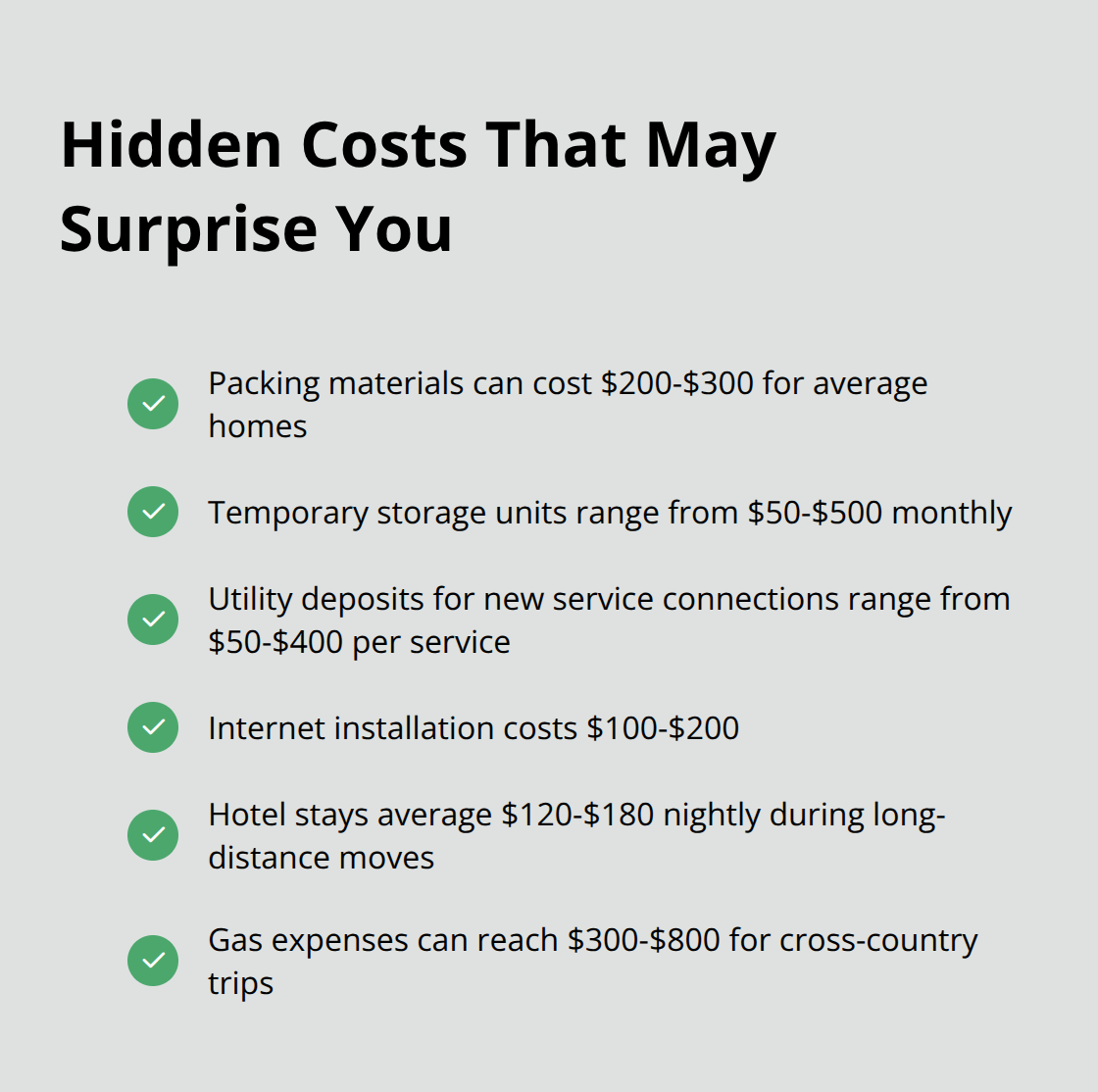Moving house ranks among life’s most expensive events, with costs varying dramatically based on multiple factors. The typical cost of moving house ranges from hundreds to thousands of dollars.
We at Southbay Moving Systems see how unprepared homeowners often face unexpected expenses that double their initial budget. Understanding these costs upfront helps you plan better and avoid financial surprises.
What Drives Your Moving Costs Higher
Distance creates the biggest expense difference in any move. Local moves within the same metropolitan area average $1,489, while cross-country relocations jump to $3,945 according to industry data. The weight and volume of your possessions multiply these base costs significantly. Professional movers charge about $80 per hour for local moves, but long-distance moves switch to weight-based rates at roughly $1.50 per pound.
Peak Season Premium Costs
Summer months from May through September command premium rates due to massive demand spikes. Companies charge 15-30% more during peak season compared to winter rates. Weekend moves cost substantially more than weekday relocations. Tuesday through Thursday offers the lowest rates, while Saturday moves can cost 25% more than midweek options (school calendar changes drive summer demand). Winter presents the smartest financial choice for flexible movers who want to avoid these premiums.

Service Level Impact on Rates
Full-service options increase total costs by 15-30% compared to basic transportation services. Packing services alone add $300-$1,000 to your bill based on home size. Specialty item care for pianos, artwork, or antiques can add hundreds of dollars per item. Disassembly and reassembly services typically cost $50-$150 per piece of furniture. Storage services range from $50-$500 monthly based on unit size and location.
Additional Cost Factors
Access to your home plays a major role in final costs. Challenging access requires additional time and labor, which increases the final bill. Stairs, narrow doorways, and long carries from the truck to your door all add extra charges. Insurance coverage beyond basic protection (which covers only $0.60 per pound) costs additional fees but protects valuable items. These variables create significant price differences between seemingly similar moves, making accurate estimates essential for proper budget preparation.
What Do Different Types of Moves Actually Cost
Local moves within metropolitan areas average $1,489 according to American Moving & Storage Association data. Professional movers charge $80-$100 per hour for local teams. Most local moves require 4-6 hours with a two-person crew, which puts typical costs between $800-$1,200 for basic service.
Long-distance interstate moves jump to $3,129 on average. Companies like U-Haul offer lower rates at $1,778, while North American Van Lines reaches $3,600. Weight determines interstate rates at approximately $1.50 per pound. A typical 7,400-pound household costs around $2,500-$4,000 in transportation alone.
Local vs Interstate Rate Structures
Local movers operate on hourly rates with minimum charges of 2-4 hours. Interstate companies use weight-based rates combined with distance calculations. One-bedroom apartments cost $1,492 locally versus $2,434 for long-distance moves.
Four-bedroom homes can reach $2,000 locally but jump to $4,500+ for cross-country relocations. Interstate moves add fuel surcharges, tolls, and extended travel time that local moves avoid completely.

Service Level Cost Differences
Self-service options like truck rentals cost $20-$100 daily plus $1.50-$2.50 per mile (totals reach $300-$800 for local moves). Full-service movers handle everything but cost 15-30% more than basic transportation.
Professional packers add $300-$1,000 based on home size. Specialty item care costs hundreds more per valuable piece. Storage integration costs $50-$500 monthly when moves require temporary warehousing.
Hidden Fees That Multiply Your Bill
These service additions quickly transform a $1,500 basic move into a $3,000+ comprehensive relocation package. However, many homeowners face additional expenses they never anticipated during the initial quote process.
What Hidden Costs Will Surprise You
Moving expenses extend far beyond the quoted rate from your moving company. Packing materials alone cost $200-$300 for average homes, with boxes that range from $2-$8 each, tape at $15-$25 per roll, and bubble wrap that costs $50-$100 for adequate protection. Professional packing supplies from moving companies cost 40-60% more than retail stores, which makes advance purchase from home improvement stores a smart financial move.
Storage and Protection Expenses
Temporary storage becomes necessary when move-out and move-in dates don’t align. Storage units cost $50-$500 monthly (depending on size and location), with climate-controlled units that add $30-$100 to monthly rates. Moving insurance beyond basic coverage costs $0.60-$1.20 per $100 of declared value. Full replacement value coverage protects expensive electronics and furniture from damage claims that basic coverage won’t cover.
Utility Setup and Connection Fees
Utility deposits for new service connections range from $50-$400 per service, with electricity deposits that average $150-$300 for new customers. Internet installation costs $100-$200 with potential early termination fees from your current provider that reach $200-$400. Cable and phone setup fees add another $50-$150 per service line. Security deposits for gas service can reach $200 in some regions, particularly for customers without established credit history.

Travel and Accommodation Costs
Long-distance moves require hotel stays that average $120-$180 nightly, meals that cost $40-$80 daily per person, and gas expenses that reach $300-$800 for cross-country trips. These travel costs often double the anticipated budget for families who move more than 500 miles from their current location. Rental car fees for one-way trips add $200-$600 to your total expenses when you can’t drive your own vehicle to the destination. Specialty items like pianos face additional fees that aren’t always included in initial quotes.
Final Thoughts
The typical cost of moving house ranges from $1,489 for local moves to $3,945 for cross-country relocations, but hidden expenses often push final bills 50-100% higher than initial quotes. Smart homeowners prevent budget surprises through detailed advance research. Accurate quotes require complete inventory lists and honest discussions about access challenges, packing needs, and timeline flexibility.
Professional movers deliver significant value beyond basic transportation services. We at Southbay Moving Systems handle everything from packing fragile items to coordinating complex logistics. Licensed professionals eliminate the stress of managing multiple vendors while insurance protection covers your belongings throughout the entire process.
The investment in professional movers pays dividends through time savings and damage prevention during one of life’s most stressful events. Request binding estimates from at least three companies and ask specific questions about potential surcharges for stairs, long carries, or specialty items (these fees add up quickly). Professional expertise transforms a chaotic experience into a smooth transition to your new home.




